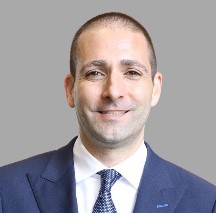Ageism in the workplace is a real issue. Many older workers face bias, no matter how skilled or experienced they are. As a result, they’re often passed over for jobs or promotions simply because of their age.
For those tired of being undervalued, franchising offers a way out. Becoming a franchise owner lets you take control of your future. You can build something of your own, on your terms.
This post looks at how ageism shows up in the workplace. It breaks down the different forms it can take and the protections that exist. Importantly, it explores how franchising can be a smart, practical solution. It’s a chance for experienced professionals to reclaim their careers and redefine success.
Understanding Ageism in the Workplace for Older Workers
Ageism in the workplace is alive and well, and older workers feel it. Unfortunately, from being passed over for jobs to hearing snide remarks about retirement, age discrimination shows up in ways that are both subtle and blatant.
Many seasoned professionals face age discrimination—dismissed as “overqualified” or overlooked in favor of younger, less-experienced candidates. It’s unfair, frustrating, and happens every day.
According to AARP, a large number of workers aged 40 and up report experiencing discrimination on the job. It comes from coworkers, supervisors, and even baked into job descriptions that quietly scream “young and hungry only.”
The emotional fallout is real. Many say this discrimination based on age leads to anxiety, stress, and early exits from the workforce. For some, it means forced retirement. For others, it’s a slow erosion of confidence, identity, and financial stability.
The World Health Organization links ageism to more than just career troubles. In fact, it reports that about 6.3 million cases of depression globally are tied to age-related bias. The damage runs deep:
- Chronic stress: Constantly feeling dismissed or overlooked wears people down, mentally and physically.
- Isolation: Many older workers feel left out in youth-focused office cultures.
- Loss of identity: When you’re sidelined, you start to question your worth.
- Money problems: Missed promotions and layoffs can shake up retirement plans fast.
While federal laws exist, state laws vary on how they protect against age bias. Also, some offer stronger protections; others fall short. That means your experience with ageism might depend heavily on where you work.
Forms of Ageism in the Workplace

Ageism wears many hats. From hiring to layoffs, it affects older workers in ways that can be hard to spot, but easy to feel. Therefore, creating a culture that openly discourages age discrimination is key to preventing age discrimination before it starts.
1. Direct Discrimination
Sometimes it’s blunt. Older employees hear comments about “slowing down” or being “set in their ways.” Meanwhile, others are passed over for roles in favor of younger workers. These messages chip away at confidence and career momentum.
2. Biased Hiring Practices
The job search is often the first battleground. For example, job listings that ask for graduation years or include phrases like “digital native” can deter older applicants. Even when qualified, they’re overlooked. This is often because some hiring managers simply assume younger people are cheaper or quicker to train.
3. Social Exclusion
Office cultures often revolve around younger workers. That can leave older workers out of the loop—socially and professionally. Fewer invites. Less facetime. Over time, that kind of isolation kills morale and limits opportunities to collaborate or lead.
4. Denied Promotions
Age-based stereotypes paint older employees as less flexible or lacking social skills. These false assumptions often cost them promotions. However, even when they have more experience, they’re told to “make room” for the next generation.
5. Forced Retirement and Layoffs
Even with the Age Discrimination in Employment Act, some companies still push older employees toward the exit. As a result, they’re the first to be laid off. Or nudged into early retirement. In many cases, businesses see them as expensive—even when their performance says otherwise.
Bias doesn’t just hurt individuals—it holds companies back. At the same time, a truly inclusive workplace values every age group, from rising stars to seasoned pros. It’s time to fix the system, not force people out of it.
Combat Ageism Through Franchise Ownership

Discrimination in the workplace is nothing new—especially for older people who’ve spent years building their careers. In fact, many have experienced age discrimination firsthand. Promotions disappear. Younger counterparts get the green light. But franchising offers a different path—one where age isn’t a barrier, but a badge of honor.
Franchise ownership puts you in control. In addition, it’s a smart way to combat ageism in the workplace and turn experience into opportunity.
1. Breaking Barriers
Tired of proving yourself to younger employees or dealing with biased co-workers? If so, owning a franchise changes the game. You’re no longer waiting for approval—you’re the one calling the shots.
No more age-based competition: You’re not battling for a seat at the table—you own the table.
Experience becomes your edge: What some see as “too old,” smart entrepreneurs see as “highly skilled.”
All age groups welcome: You can build a team that values people for what they bring, not how old they are.
Example: A former project manager in his 50s, tired of being passed over, launched a logistics franchise. Consequently, his leadership skills and calm under pressure became the foundation of a thriving business.
2. Leveraging Experience
In corporate life, your resume might get skipped. In franchising, your experience becomes a growth engine.
Skills older workers bring to the table:
- Team leadership
- Financial planning
- Customer relationships
- Problem-solving in fast-paced situations
Franchise ownership, in turn, gives you the platform to use your expertise without having to prove it to someone half your age. After all, it’s your experience that sets you apart—not your birth year.
3. Independence and Flexibility
Traditional jobs often trap older employees in rigid structures and outdated mindsets. On the other hand franchise ownership gives you the freedom to define your own success.
- Be your own boss: Skip the hierarchy, forget the politics.
- Set your schedule: Need more time for grandkids or golf? You’ve got it.
- Say goodbye to bias: No more snide comments from co-workers or being ignored in meetings.
This isn’t just career freedom—it’s personal freedom. It’s your second act, on your terms.
4. Industry Diversity
There’s a franchise for almost everything. That means long-term unemployed professionals or career-changers can find a business that speaks to their strengths—or their heart.
- Find your fit: Choose something you’re good at—or something you love.
- Do work that matters: Help older people, teach kids, or improve lives in your community.
- Try something new: Don’t limit yourself to what you’ve done before.
Example: A long-term unemployed woman in her 60s turned her passion for caregiving into a senior care franchise. In doing so, she now helps people in her same age group live with dignity—and turned her purpose into a paycheck.
5. Comprehensive Support
You’re not doing this alone. Thus, franchise systems are built to support owners of every age group, from fresh grads to seasoned pros.
- Training: Learn the ropes from day one—no guesswork.
- Marketing help: Proven strategies to attract and keep customers.
- Ongoing support: Systems and processes that keep things running smoothly.
Franchising isn’t just about business ownership—it’s about partnership. And it doesn’t care if you’re 28 or 68. What truly matters is your drive, not your age.
Why Franchising is the Solution

Franchise ownership isn’t just an escape from workplace discrimination—it’s a way to rewrite your career narrative. More importantly, it’s about showing that older individuals bring invaluable skills, experience, and resilience to the table.
- Empowers independence: Take charge of your professional journey without relying on biased employers.
- Provides financial security: Build a stable income stream through a proven business model.
- Combats ageism: Prove that success is not limited by age but is driven by expertise and passion.
Investing in a franchise, you’re not just overcoming ageism—you’re breaking stereotypes and leading by example. Ultimately, let franchising be your path to a fulfilling and purpose-driven second act. It’s time to redefine what it means to succeed at any age.
Ready to take the first step toward transforming your career?
To get started, begin your franchising journey by consulting with a franchise consultant today. This crucial step will empower you with the knowledge to navigate the franchising landscape, helping you identify opportunities that align perfectly with your vast experience and personal goals.
A franchise expert can provide invaluable insights into the process, guiding you through selecting the right franchise model that leverages your strengths and passions.


